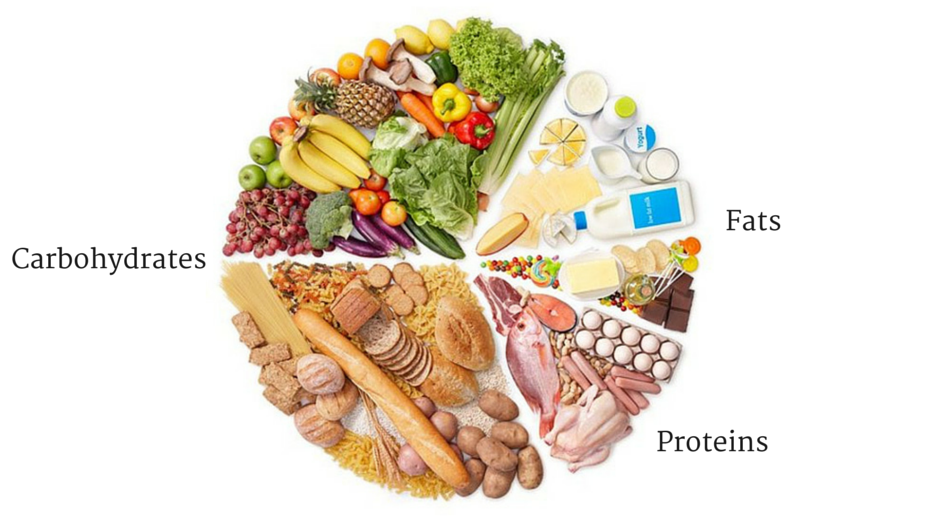The most important things when it comes to nutrition for both fat loss and muscle gain are (and yes, this is in order of importance):
- Your calorie intake.
- The macronutrient composition of your diet: protein, fats, and carbs.
- Your micronutrient intake: vitamins, minerals, etc.
- The timing and frequency of your meals
- Supplements that help cover your deficiencies
These are the biggies — these are the things that will yield the results you’ve been striving for.
Looking at this list, it comes to no surprise that a lot of people aren’t getting the results they want.
There’s the misconception that fat loss is all about eating more fruits and veggies (#3 on the list), or about eating every 2-3 hours to “stoke your body’s metabolism” (#4). Don’t forget how much attention is paid to fat-burning supplements (#5).
The truth of the matter is what should be prioritized is usually what is overlooked.
Priority #1: Calories
This is the most important variable when it comes to nutrition. Whatever your goal is, whether you’re trying to shed some fat or pack on some muscle, your energy balance is the main determining factor of body composition.
It’s the First Law of Thermodynamics:
Basically, calories matter.
For the past few years, many gurus and experts have tried to tell us that calories don’t matter, that it’s all about food quality and eating more vegetables and blah blah blah blah.
Yes, food quality sure does matter, but how many calories you’re consuming of that quality food matters just as much. This is why “clean eating” isn’t the solution to fat loss.
At the end of the day, you’ll either gain, lose, or maintain weight depending on the amount of calories you’ve consumed. This based off of your body’s caloric maintenance.
Your caloric maintenance is simply the amount of calories you need to eat in order to maintain your current weight.
To Maintain Your Weight
If your goal is to she fat, you’ll figure out your caloric maintenance, you’ll then go on a caloric deficit.
This can be done in three different ways.
Yes, there’s more to it than just eating less and moving more, but the gist of it is this: the change in your body composition is largely dependent on your energy balance (calories in vs. calories out).
If someone ever tells you that calories don’t matter and that your results will come from eating “clean”, take it with a grain of salt.
Priority #2: Macronutrients
In simplest terms, macronutrients — or macros — make up the calories in the foods you consume. These three things play an important role when it comes to the fat loss/muscle gain formula.
The amount that you consume for each macro is based on numerous factors such as physiological need, activity level, personal preference, etc.
Just like calories, you want to make sure that there’s some sort of balance when it comes to their consumption.
Out of the three, protein is the most important macronutrient; it requires the most attention. If there’s one thing mainstream media has gotten right about nutrition, it’s that you want to make sure you’re consuming enough protein, as its benefits are numerous:
Reduction of appetite and hunger
Can boost metabolism and increase fat burning
Helps with increase of muscle mass and strength
Improve bone density
Can reduce late-night cravings
Fats, meanwhile, get both love and hate. The truth is that fats are actually a necessary component of your diet, and not just for body composition, but for overall health. You need enough healthy fats to maintain optimal body function as well as performance.
Lastly, carbs provide energy for your body. The amount of carbs your body needs depends mainly on your goals, training volume, activity level and tolerance.
Priority #3: Micronutrients

What is commonly thought of as the most important factor of fat loss actually falls into 3rd place in the nutritional hierarchy. Yes, your parents were right, eating your fruits and vegetables is important.
Consuming fruits and veggies provides crucial micronutrients — vitamins— that help keep you and and your immune system healthy.
If you’re already eating plenty of these, chances are you’re covering micronutrient deficiencies. If fruits and veggies aren’t your thing, you might consider a supplement (covered further in Part 3). Just like fats, fruits and veggies are necessary for optimal functioning.
Getting enough nutrient-dense foods supports better health overall. Think about this — what’s the point of having six-pack abs if you’re always sick, tired, and feeling sluggish?
Priority #4: Meal Frequency and Timing
At the fourth level of the pyramid, meal timing and frequency make
up only a small fraction of the pyramid. Here’s what you really need to know….
There’s no need to eat every 2-3 hours for a total of 6, 7, or even 8 meals a day to “speed up the metabolism”.
Meal frequency for fat loss isn’t as important as we once thought it was.
Eating 3 full meals a day might be enough. You just want to make sure you’re not overeating — you don’t have to get all 3 meals in.
Some might eat 1 to 2 giant meals, while others would find themselves totally hangry (hungry + angry) in between.
You want to find a balance that works for you and your body. Eat enough, but not too much that you’re forcing yourself. You’ll do this based on your lifestyle, schedule, and preferences.
Priority #5: Supplements
They’re useful, but they aren’t the answer to everything. This is why they’re the last part of the pyramid, and why they should be the last thing you should worry about.
A good fat loss starting supplement stack that I recommend would include the following:
- Whey protein powder
- Multivitamin/greens supplement
- EPA/DHA (fish oil)
Of course, your need for supplements will vary on your body and any possible deficiencies or limitations in your diet.